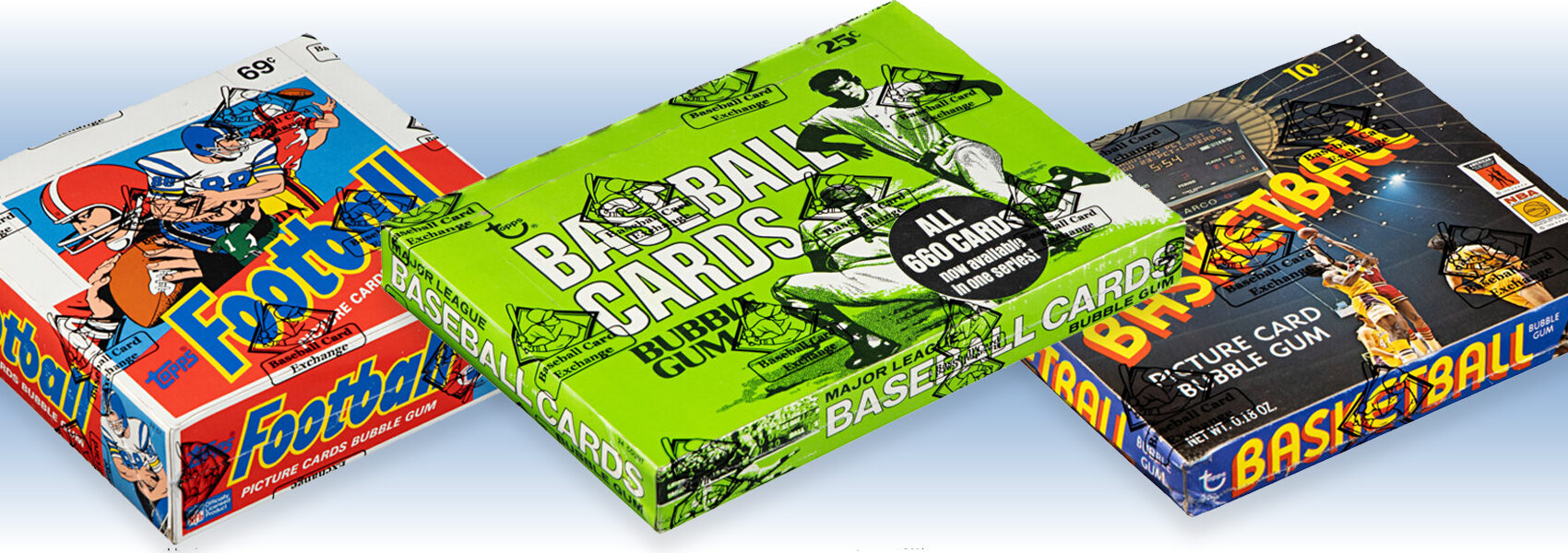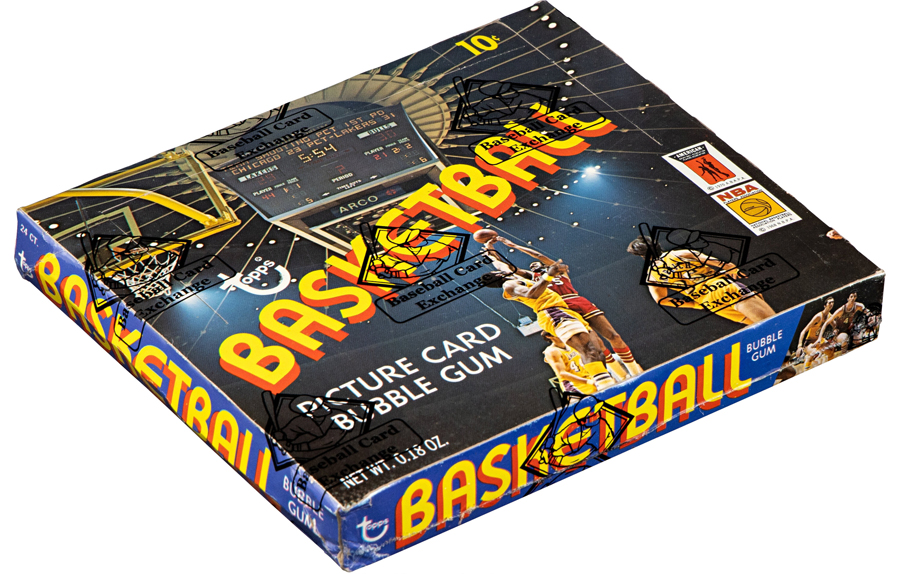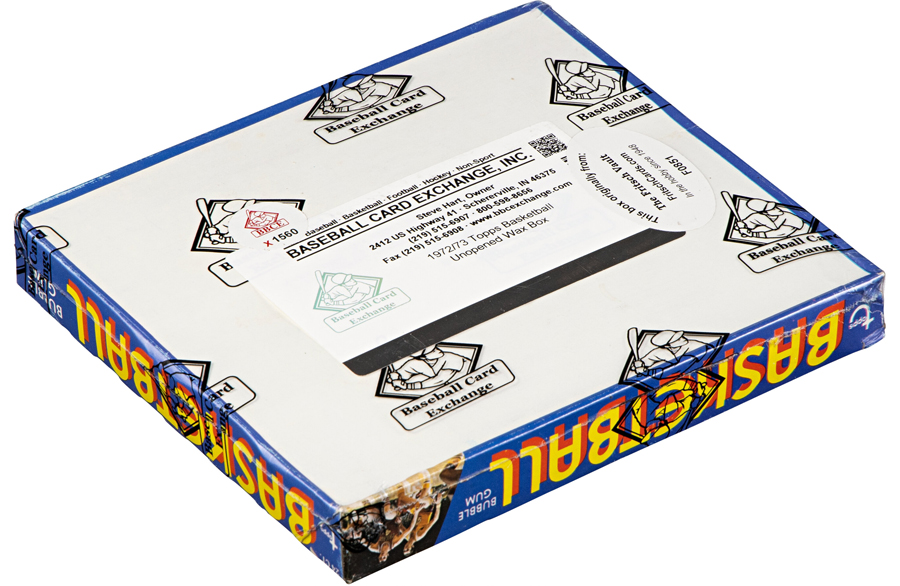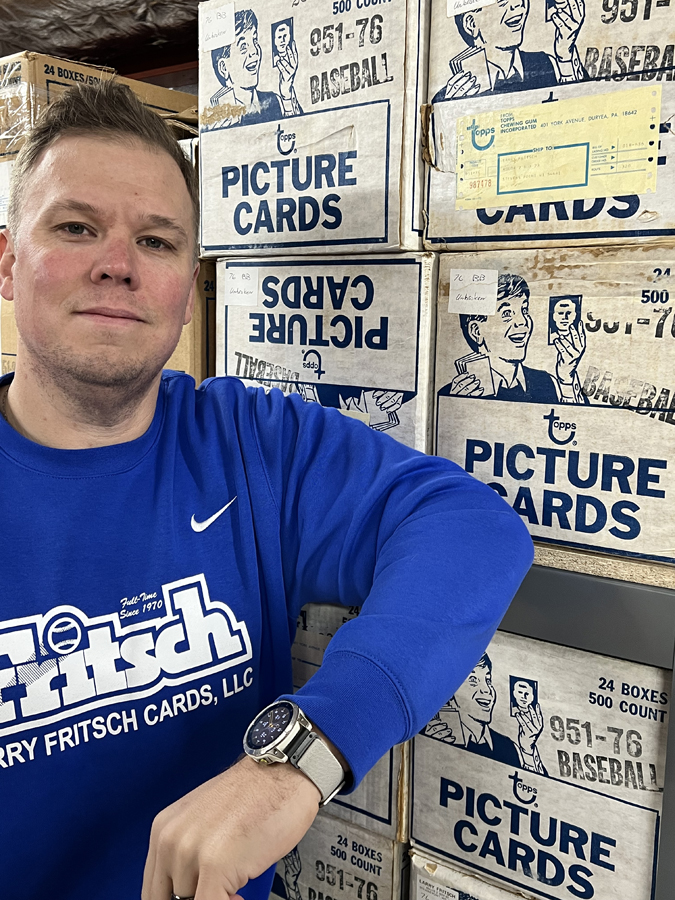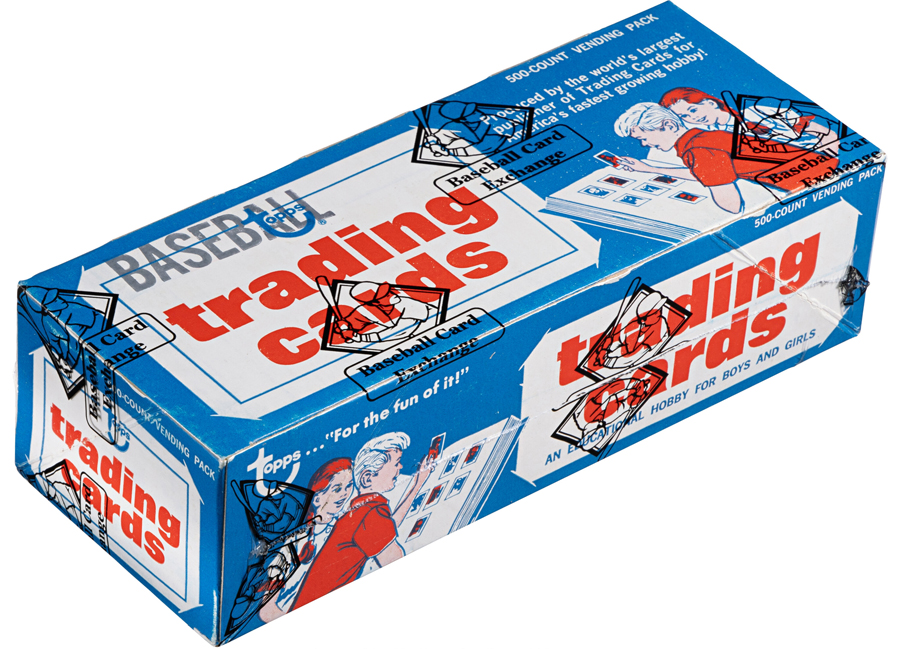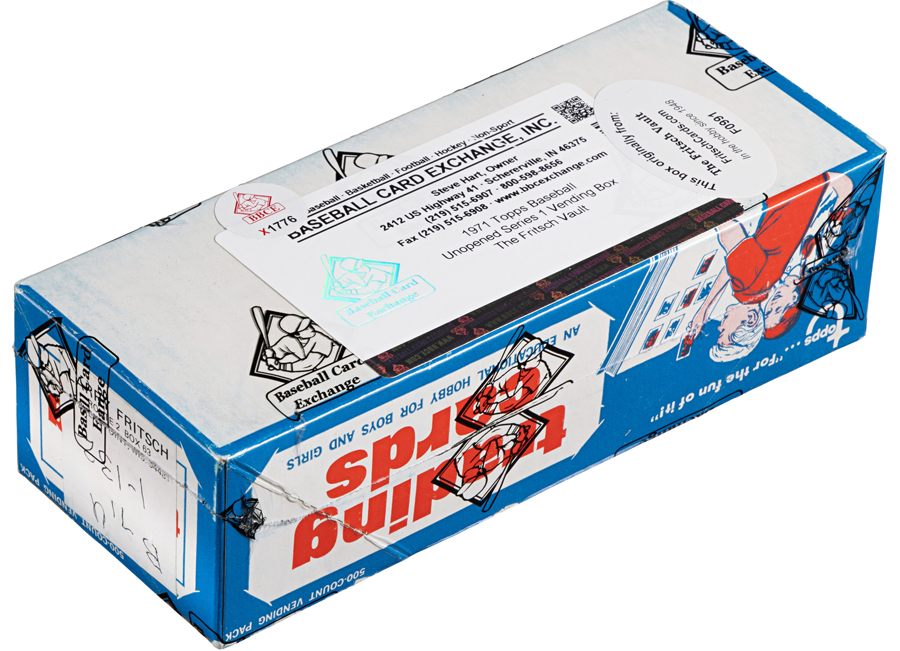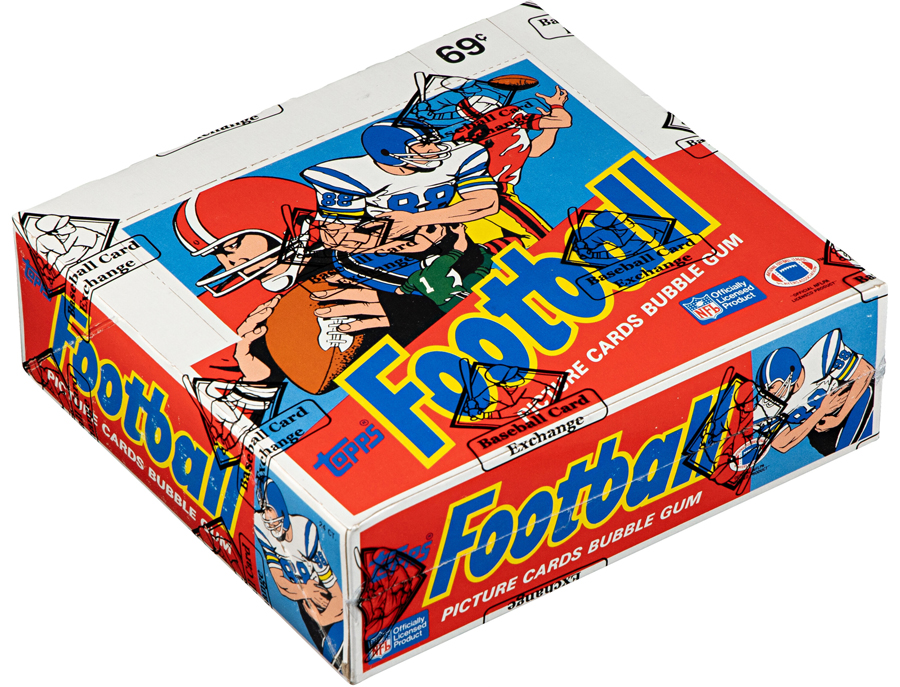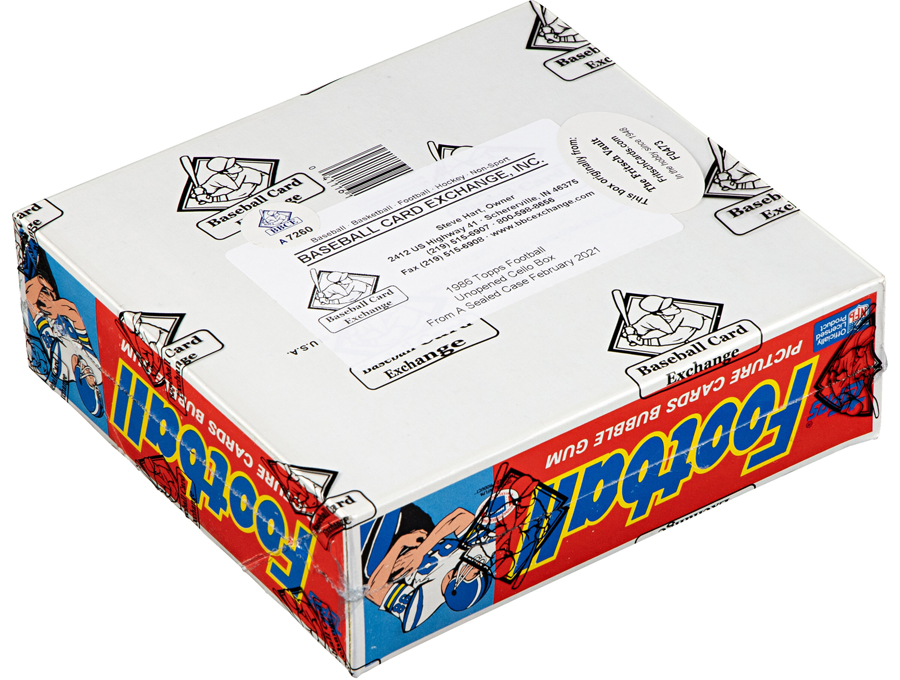A SPORTS CARD DYNASTY SINCE 1970, THE FRITSCH FAMILY BUSINESS IS STILL GOING STRONG THREE GENERATIONS LATER
By Joe Orlando
As someone who grew up collecting in the 1970s and ’80s, I found the name “Fritsch” synonymous with the hobby. Long before the internet and when mail order was in its heyday, there weren’t many names as prominent as this one. For decades, the Fritsch family, led by its patriarch Larry, likely helped more collectors build their sets than any industry outfit in the country.
Today, with so many new participants in the hobby, the younger generation of collectors might not be familiar with the Fritsch family, a staple in this business longer than most of us have been alive. However, history is essential. Larry Fritsch is one of the pioneers who helped the sports collectibles market reach its robust state today by advancing the hobby in the past. He may be gone, but his contribution is not forgotten.
While Larry is no longer with us, his grandson Jeremy is carrying on the family tradition. The Fritsch family has provided quality collectibles through the Heritage Auctions platform for years, including lots in the upcoming Winter Platinum Night Sports Auction on February 22-23. For collectors, the Fritsch archive is the gift that keeps giving.
According to Jeremy Fritsch, unopened vintage wax and cello boxes can exhibit outstanding eye appeal, like this 1972 Topps basketball wax box direct from the Fritsch vault and available in Heritage’s February 22-23 Winter Platinum Night Sports Auction.
It all began when Larry got the collecting bug in the 1940s while he was in elementary school. Like many young boys from that era, Larry rode his bike to the local drugstore and bought as many packs as he could, trading with friends afterward. As time went on and during his teenage years, Larry started a mail-order business as a part-time gig. His passion for collecting never subsided as his full-time jobs kept changing.
Amongst other things, Larry worked at the local railroad, but the stress of that job and others started to impact him, both physically and mentally. So, when Larry’s doctor recommended that he cease working jobs that were creating this level of stress, the soon-to-be hobby icon fell back on the one occupation that brought him joy and a level of peace – baseball cards.
The part-time business became his full-time career in May 1970. Larry worked out of a basement that remains on the Fritsch family property today. Of course, he started to run out of room rather quickly. What was once a farm turned into the Fritsch card business, one that required expansion multiple times due to the explosive growth. It was a family affair from the start, as Larry called upon various members to help, including his then 11-year-old son Jeff.
Jeff eventually took the baton from Larry, which was passed to his son Jeremy upon Jeff’s sudden passing in 2017. Year after year, and through personal tragedy, the Fritsch family has stayed strong. Their hobby roots run deep, but unlike many families whose founding fathers have come and gone, they are still at it because the next generation was willing to keep the fire burning, and collectors are the beneficiaries.
Jeremy, who is the face of the franchise today, was surrounded by cardboard from the beginning. Admittedly, he didn’t fully appreciate the unique position he was in as a child. Now, when he reflects on his younger days, he realizes how fortunate he was to be a part of something so special. “It was simply a part of my everyday life,” he explains. “Most of us can recall where we were during major world events, but no matter where I found myself or what was going on around me, the cards were always present. From war overseas to the O.J. Simpson chase to 9/11, I seemed to be sorting and organizing cards all the time. They were a constant when I was growing up and in the best possible way. Thinking back, the cards and the process helped provide an escape.”
Jeremy Fritsch has taken the reins of the Fritsch family business and into its third generation, which was started by his grandfather Larry decades ago.
That said, taking the reins wasn’t always part of his ultimate plan. “There were times I wanted to do anything but this,” Jeremy says with a chuckle. “There were phases when I wanted to be just like my dad, and then I didn’t, which is a feeling a lot of sons go through.” After going away to college and then facing the loss of his father, things became clear. In Jeremy’s words, “It was meant to be, and I haven’t looked back since 2017.” What started with sadness became something that brings great joy to his daily life today.
As you might imagine, Jeremy has seen and been around cards more than most collectors could ever claim. While it takes a lot to impress him, he remains surprised by the seemingly endless discoveries in the Fritsch vault. “There are collectibles in our archive that have been sitting in the same location for 40 or 50 years,” he says. “As we go through the process of reorganizing it, again and again, I am still amazed at what we find.”
Larry was, as Jeremy says, a “master accumulator.” Larry would prioritize his cards’ accessibility in the vault based on his needs at specific points in time, which meant other collectibles would end up in harder-to-reach places. The storage strategy wasn’t necessarily based on market value, which meant some terrific collectibles were tucked away for extended periods in warehouses that would rival football fields.
Of course, the Fritsch family’s stock-in-trade has always been unopened cases, boxes and packs. “It’s our bread and butter,” Jeremy says. “Our supply of vintage vending has helped collectors put together sets for years, and the allure of wax and cello products never seems to go away.” As many collectors know, vintage unopened collectibles have been as hot as any segment of the market for several years. Jeremy has watched it expand from a front-row seat.
For years, the Fritsch family has provided unopened Topps vending products to the hobby, and Jeremy believes these boxes, like this 1971 Topps Baseball Series One example, offer great value for collectors.
“To this day, we still put together hand-collated sets and sell just about everything, but unopened is the Fritsch family calling card,” Jeremy notes. “There is no other collectible quite like it. The rush someone gets from owning or opening unopened products is hard to replicate in other collectibles fields. There is a surprise factor, and wax and cello boxes can offer great eye appeal. Even vending boxes, which are not as exciting to look at, can produce some outstanding cards and offer tremendous value based on the number of cards contained inside.”
Jeremy adds that the Fritsch family pedigree is not just about pride, but he believes it adds meaningful long-term value. “History has been important to my family, and we know it’s important to collectors as well,” he says. “The Fritsch Vault sticker means it went straight from Topps to our warehouse. We then have each box wrapped by BBCE [Baseball Card Exchange] before they are placed in auction. The Fritsch provenance provides a differentiator because it’s a link to the original source.”
Having been born into collecting in a way that is hard for many of us to imagine, Jeremy could have become desensitized to the entire hobby, but to this day, he remains a collector. “Like most collectors, I have gone through different phases of interest,” he recalls. “I was born during the hobby boom in 1984, and I enjoyed building sets growing up, which is a lost art today in the modern market. Unlike my friends, I fell in love with vintage cards. From 1962 Topps to 1971 Topps and more, it’s the designs that drew me in.”
Jeremy says it is hard to compete with the rush provided by unopened collectibles, and cases, boxes and packs, like this 1986 Topps Football cello box, have been the foundation of the Fritsch family business for years.
That is one reason Jeremy found the Topps Heritage releases so intriguing. He has also carved out a special place in his collection for Ted Williams, whose legendary status speaks for itself. Today, with a young family and space at a premium, Jeremy finds himself paring down the size of his collection to focus on quality over quantity. “I think I am at a point that many collectors face,” he says. “Some of it is out of desire, and some of it is out of necessity, but I have entered a phase of my life where I would rather own fewer but better collectibles than vice versa.”
If Jeremy has one tip for new collectors, it would be to start small. “There are so many great things to collect, even just within the confines of unopened, but it’s so important to have a plan,” he says. “Starting with a focus allows you to build a foundation that you can expand upon later as you gain experience. Find a player, team, set or year and work from there. There are so many paths you can take, so it helps to have collecting goals.”
One thing’s for sure: Jeremy has helped the Fritsch family legacy reach its third generation by accepting the challenge and responsibility that managing the abyss of cardboard comes with. As for a possible fourth generation someday? “My son has already shown interest in cards,” Jeremy says with a smile. “So, you never know.”
It’s just a hunch, but I’m guessing the hobby collectively hopes that the most recent Fritsch fruit doesn’t fall far from the collecting tree.
 JOE ORLANDO is Executive Vice President of Sports at Heritage Auctions. He can be reached at JoeO@HA.com or 214.409.1799.
JOE ORLANDO is Executive Vice President of Sports at Heritage Auctions. He can be reached at JoeO@HA.com or 214.409.1799.

